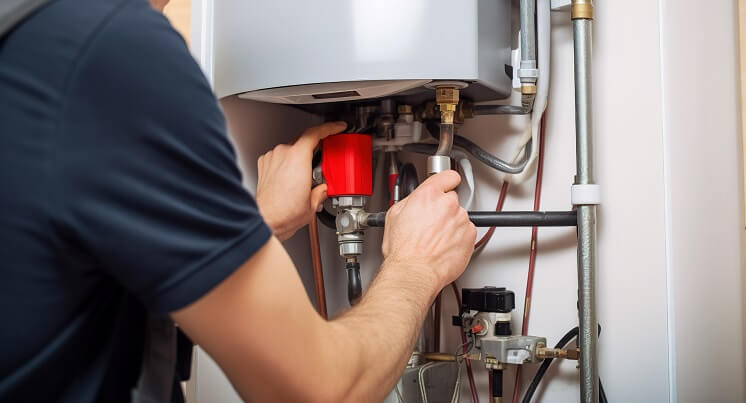Every person seems to have their own unique views when it comes to Water Heaters Problems.

Picture beginning your day without your routine warm shower. That currently sets an inadequate tone for the rest of your day.
Every house needs a trustworthy water heater, however just a couple of know exactly how to take care of one. One simple means to keep your water heater in leading form is to check for faults on a regular basis and also fix them as soon as they appear.
Keep in mind to turn off your water heater before sniffing around for faults. These are the hot water heater mistakes you are probably to run into.
Water also warm or also cold
Every water heater has a thermostat that identifies how hot the water obtains. If the water entering your home is too warm regardless of setting a convenient optimum temperature, your thermostat might be damaged.
On the other hand, as well cold water may result from a stopped working thermostat, a damaged circuit, or improper gas circulation. For example, if you make use of a gas water heater with a busted pilot light, you would certainly get cold water, even if the thermostat remains in perfect condition. For electrical heaters, a blown fuse may be the perpetrator.
Not enough hot water
Hot water heater come in numerous dimensions, depending upon your warm water needs. If you run out of hot water before every person has had a bathroom, your water heater is also small for your family size. You should take into consideration setting up a bigger water heater tank or choosing a tankless water heater, which takes up less space and also is more durable.
Strange sounds
There go to the very least five kinds of sounds you can learn through a hot water heater, yet one of the most typical analysis is that it's time for the water heater to retire.
Firstly, you must recognize with the normal sounds a hot water heater makes. An electric heating system might seem different from a gas-powered one.
Standing out or banging noises typically mean there is a piece of sediment in your tanks, and it's time to cleanse it out. On the other hand, whistling or hissing noises might just be your valves allowing some pressure off.
Water leakages
Leaks can come from pipelines, water connections, valves, or in the worst-case scenario, the storage tank itself. Over time, water will wear away the container, and locate its escape. If this occurs, you require to change your water heater as soon as possible.
Nevertheless, prior to your adjustment your entire tank, make sure that all pipelines remain in place and that each valve functions flawlessly. If you still need assistance recognizing a leakage, call your plumber.
Rust-colored water
Rust-colored water means one of your water heater components is corroded. It could be the anode rod, or the tank itself. Your plumber will be able to identify which it is.
Lukewarm water
No matter how high you set the thermostat, you won't obtain any kind of warm water out of a heating system well past its prime. A hot water heater's effectiveness may decrease with time.
You will additionally obtain lukewarm water if your pipes have a cross link. This indicates that when you switch on a tap, warm water from the heating unit streams in alongside regular, cold water. A cross connection is very easy to area. If your hot water taps still run after closing the water heater valves, you have a cross link.
Discoloured Water
Rust is a major cause of unclean or discoloured water. Corrosion within the water storage tank or a failing anode pole might create this discolouration. The anode rod safeguards the tank from rusting on the within as well as should be examined yearly. Without a pole or a properly operating anode pole, the hot water swiftly corrodes inside the tank. Get in touch with a professional water heater technician to figure out if changing the anode rod will certainly deal with the problem; if not, change your water heater.
Conclusion
Ideally, your hot water heater can last one decade prior to you require an adjustment. Nonetheless, after the 10-year mark, you may experience any one of these faults extra on a regular basis. At this point, you should include a new hot water heater to your spending plan.
How To Troubleshoot 3 Common Water Heater Problems in Twin Cities
The Water Heater Is Leaking
A leaky cold water inlet valve A loose pipe fitting A leaky temperature and pressure relief valve A corroded anode rod A cracked tank Turn Off Your Water Heater:
Shut off your gas water heater by turning the gas valve on the unit to the “OFF” position. Shut off your electric water by switching its power off at your electrical panel. Look for a two-pole breaker labeled “water heater” and turn it to the “OFF” position. Move the ball valve connected to the water heater to be perpendicular to the piping at a 90° angle. Look for the Leak:
Depending on whether the water is coming from the tank's top or bottom, you’ll want to look for the leak in different locations.
If the leak comes from the top of the tank, carefully look for water escaping from the cold water inlet valve or loose pipe fittings. Rusted hot and cold water valves can have loose connections with the tank, with water leaking out of them.
https://mspplumbingheatingair.com/blog/how-to-troubleshoot-3-common-water-heater-problems
I hope you enjoyed our topic on Common Problems with Tank Water Heaters. Thank you for finding the time to read our article post. Are you aware of someone else who is enthusiastic about the niche? Be sure share it. Thanks so much for going through it.
Quality fix? Call!